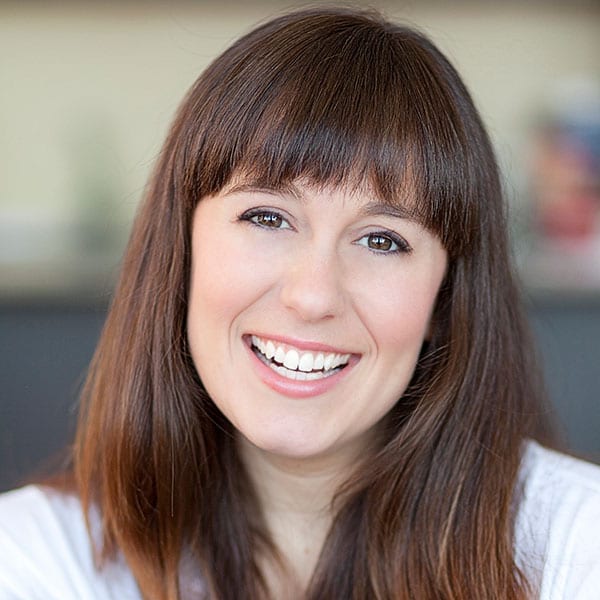It takes a true specialist to accurately identify and meticulously remove all areas of endometriosis from the body.
Endometriosis surgery is not a sub-specialty in gynecology and there is no formal accreditation of surgical specialism in treating endometriosis. Endometriosis is a common condition that most OBGYNs treat, along with a whole range of other gynecologic conditions. So, why should endometriosis patients seek out a surgical specialist for their surgery and what exactly is a surgical specialist? While endometriosis is a common disease, affecting some 176 million women worldwide, it is not a simple disease to treat surgically.
- The disease has many visual presentations, some very subtle and difficult to identify, and typically occurs in multiple locations throughout the woman’s pelvis. In some cases visualization may be further hampered by the presence of adhesions (scar tissue that binds different structures and organs), resulting in distorted pelvic anatomy.
- Optimal visualization of the pelvis is achieved via laparoscopy (Band-Aid surgery), in which tiny instruments, including a camera (laparoscope), are inserted through small incisions in the patient’s abdomen. While laparoscopy is less invasive than laparotomy (open surgery) and offers greater magnification and illumination of the pelvis, it does require a high level of skill and experience.
- In order to treat the disease, especially in severe cases, it is necessary for the surgeon to operate on or near the bladder, ureters (the tubes that carry urine from the kidneys to the bladder), fallopian tubes, ovaries, bowels, major blood vessels, and sometimes even the diaphragm. This means the surgeon needs to be experienced and comfortable working in all these areas and has the necessary help on hand from assisting general, colorectal, urinary and thoracic surgeons to completely remove the disease from all areas while minimizing complications.
- Endometriosis can infiltrate some distance beneath the peritoneum (the saran-like wrap that cloaks the pelvic structures). Surgical techniques that burn ((electro)coagulation, diathermy, and fulguration) the disease may only treat the surface tissue and do not destroy the underlying disease. Burning is also not suitable for treating disease near or involving vital structures such as the bowel and ureters. It is rather like melting the tip of an iceberg while leaving the rest behind. If the disease is not fully eradicated the patient may well go on to experience a recurrence of her symptoms after surgery. Effective removal of disease can be achieved by carefully excising (cutting out) the affected areas, leaving only healthy tissue behind. In exceptional cases excision may not be appropriate because of the involvement of delicate structures. In these cases, the surgeon may use ablative vaporization to carefully vaporize the diseased tissue, leaving the vital structures intact and undamaged. This technique is referred to as EVE (Excision and Vaporization of Endometriosis).
In conclusion, endometriosis can be difficult to identify and can involve multiple organs and vital structures. It can be associated with severe adhesions, fusing organs together, which then need to be carefully separated without causing damage. Effective removal of the disease requires painstaking surgery drawing upon multiple surgical specialties and involving advanced laparoscopic techniques that take considerable time and experience to master.
Surgical specialists in endometriosis have chosen to focus primarily on treating this complex disease. They treat a high volume of endometriosis patients and therefore are familiar with all the disease presentations and locations in which the disease can occur. They have spent many hours refining their advanced laparoscopic skills, enabling them to carefully and completely remove the disease from any location, while minimizing complications. They appreciate the results that can be achieved when surgery is performed well and take the necessary time during surgery to achieve these results. Many have undergone previous and continued training with experts in the field so as to master the techniques needed to offer optimal surgery and offer training and consultancy to other aspiring surgical specialists.
Endometriosis surgery is not recognized as a sub-specialty within gynecology but many expert surgical specialists agree that it should be because it represents some of the most complex and demanding surgery in the human body. There is no accreditation for this type of surgery, which is why it is important to ask your prospective surgeon about his or her surgical success rates.
Due to lack of specialization, primarily relies on techniques to burn the disease superficially, leaving disease untreated or only partially treated.Is confident performing wide-excision to remove all areas of disease and uses ablative vaporization in limited situations to preserve vital structures and fertility.Works at a hospital with a low volume of endometriosis patients and limited experience in their specific post-operative needs.Works at a hospital that is familiar with the unique post-operative care of endometriosis patients.
| Non-specialist OBGYN | Surgical Specialist |
|---|---|
| Sees patients for a broad range of conditions. Low volume of endometriosis patients and therefore limited experience in recognizing and treating endometriosis. | Focuses on seeing patients with complex gynecologic conditions. High volume of endometriosis patients and therefore extensive experience in recognizing and treating endometriosis. |
| Due to breadth of practice, reserves limited time for surgical procedures. Limited hours spent performing surgery. | Due to specialization, spends many hours performing surgery each week, providing ample experience to refine and maintain skill set. |
| Has completed no or limited further/advanced training in laparoscopy. Has only received basic surgical training in medical school. Is therefore more confident performing laparotomy (open surgery) than laparoscopy. | Has completed further training in laparoscopic surgery to develop advanced skills. Is comfortable performing most if not all procedures by laparoscopy (keyhole surgery) instead of laparotomy (open surgery). |
| Higher risk of complications if complex surgery is attempted. | Low complication rate with complex surgery. |
| Assisting surgeons may not be on hand to aid with surgery on the bowels, bladder, ureters, and diaphragm leading to incomplete surgery. | An experienced multidisciplinary team is on hand to assist where needed or the surgeon has surgical privileges to independently work on the bowels, urinary tract, and diaphragm. |
Research into the quality of life in 7,025 patients who underwent endometriosis surgery with nonspecialist OBGYNs has revealed that the surgery is often ineffective. Only 8% of patients reported moderate to good relief of symptoms following surgery and 22% reported mild improvement, while 70% reported no benefit or even a worsening of symptoms [1]. Given hormone therapies have been found to show a somewhat superior efficacy in reducing pain albeit with significant side effects and not suitable in treating infertility, many OBGYNs favor hormone therapy as the mainstay of endometriosis treatment.
Surgical specialists, however, report considerably better outcomes following surgery. Our patients report an average of 75% improvement following their surgery and 57% of patients report a 90-100% improvement [2]. This suggests that surgical expertise is needed to adequately remove the disease without symptom recurrence. Many patients undergoing surgery with their OBGYNs will receive inadequate surgery and their symptoms will persist or recur. This is not a criticism of nonspecialist OBGYNs but rather an observation that endometriosis requires advanced surgical skills that simply fall beyond the scope of general gynecology.
After many years of doctors telling me there’s nothing wrong, …it’s all in my head, …maybe I should get pregnant… I had given up. I sent my records to Dr. Cook and he could immediately see that endometriosis was missed… During surgery, he also diagnosed interstitial cystitis… With out his help, I would be suffering, potentially for the rest of my life.
– Grace

References:
1. Pain and Quality of Life Survey, commissioned by the UK Endometriosis All-Party Parliamentary Group and presented at the Ninth World Congress on Endometriosis, Maastricht, The Netherlands, 2005.
2. Dr. Cook’s clinical data, 2004-2014.
